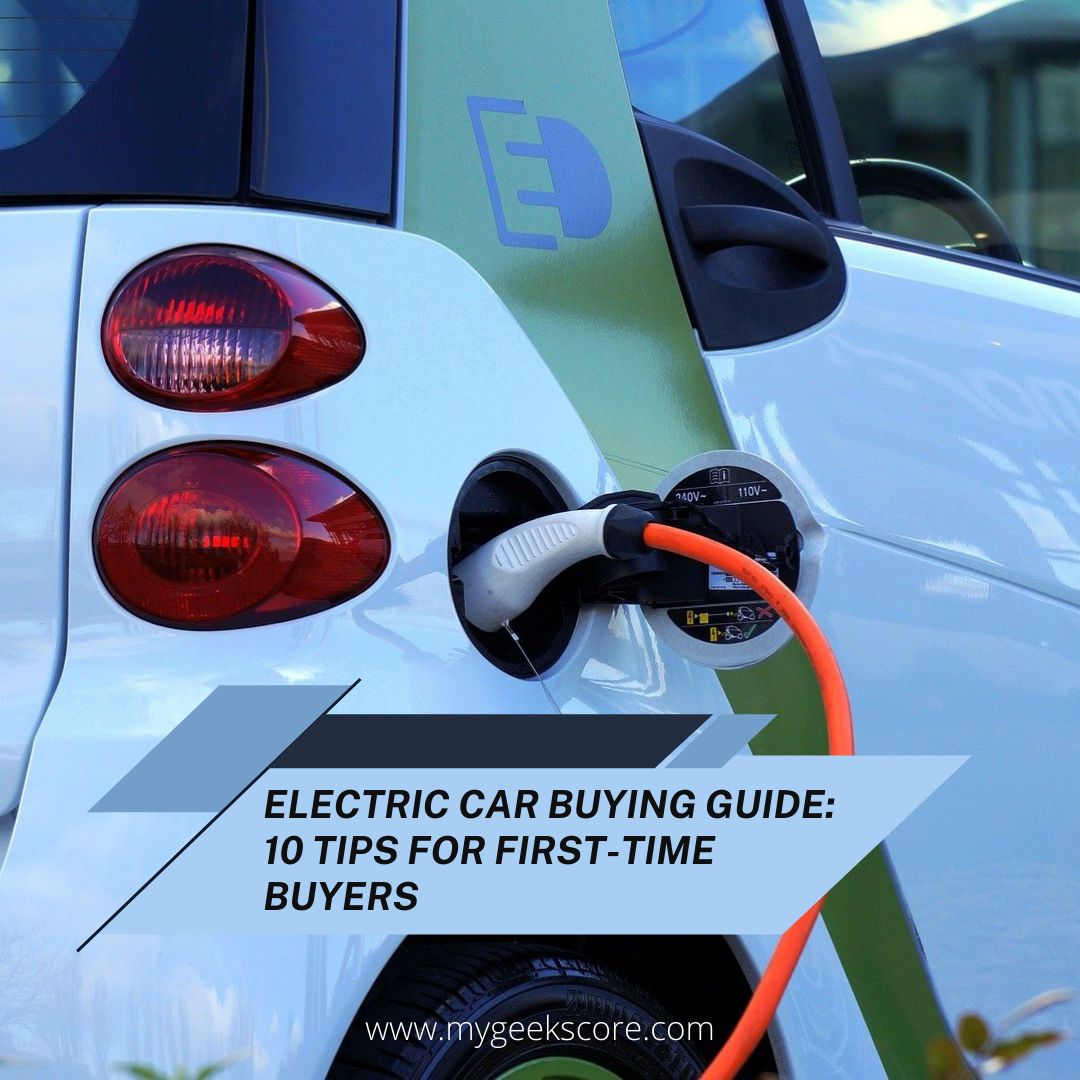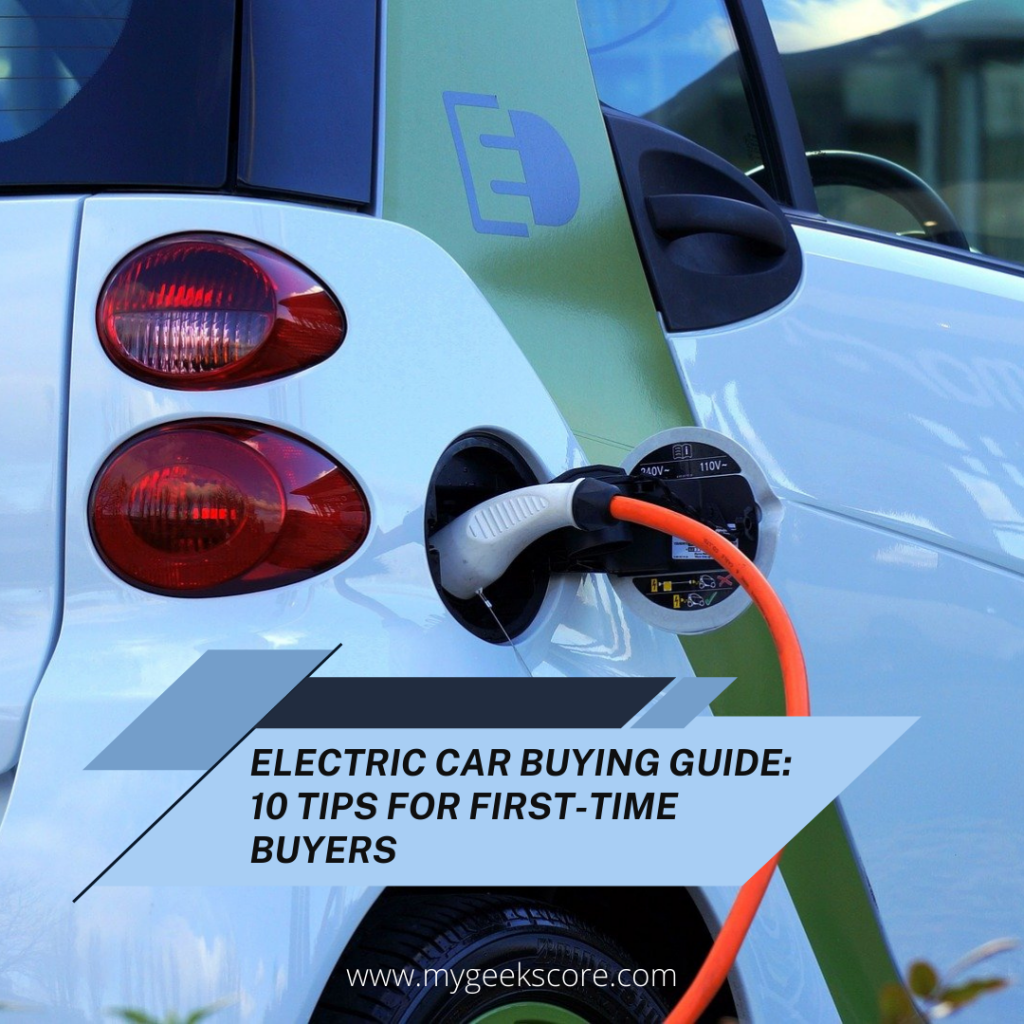Electric Car Buying Guide: 10 Tips For First-Time Buyers


My Geek Score: Electric vehicles offer cheap maintenance costs due to their lack of moving components, and they’re also great for the environment because they burn almost no fossil fuels (petrol or diesel). There is no doubt that electric vehicles are the way of the future for transportation, and we all know how beneficial they can be to the environment. Cleaner emissions equate to less pollution, and a greener environment is a desirable goal for all.
To acquire an electric vehicle, you must first pick the type of EV you want to buy. Several things influence your decision-making. Purchasing an electric vehicle is more expensive than a regular petrol or diesel vehicle. Before purchasing an electric vehicle, consider the following factors:
Is it a good match for my needs
If your daily commute averages more than 200 kilometres, an electric vehicleis probably not for you at this time. Travel no more than 40 kilometres each day, and the majority of households own a second vehicle. The ‘runabout’ can be replaced with an electric vehicle if you so want. When travelling over long distances, you have the option of renting an average gasoline car.
The cost of EV
Electric vehicles are good for the environment, but they’re expensive. When compared to conventional vehicles, electric vehicles are more costly due to their more complicated drive-train and more expensive battery pack options. So, before purchasing an electric vehicle, consider your budget.
Incentive programmes and tax benefits
The government’s incentives and tax breaks can help lower the overall cost of electric vehicles. If you buy an eco-friendly vehicle, be sure to check on the exact percentage of incentive and tax benefits you receive. A reduction in federal EV tax credits from the US government also helps to lower the cost of an electric vehicle.
Software updates
Electric vehicles have sophisticated power-train and cutting-edge electronics, and manufacturers are constantly updating their models to take advantage of the latest advancements in technology. As a result, after purchasing an electric vehicle, be sure to acquire regular software updates. Some manufacturers provide software upgrades for free, while others charge customers. So, when shopping for an electric car, arm yourself with knowledge.
Driving range
One of the most important considerations when purchasing an electric vehicle is the vehicle’s range. Never rely on the stated driving range provided by the manufacturer. Instead, read real-world reviews to learn about the EV’s real-world driving range. A 100-kilometre driving range is typical for an electric vehicle, making it suitable for short commutes. Some high-end electric vehicles have a degree over 400 kilometres.
How Long Will a Single Charge Last
Electric vehicles rely heavily on their battery packs, and for a good reason. Aside from being heavy, an electric vehicle’s battery is also one of its most expensive components. Replacing an electric vehicle’s battery pack will cost you money. Check the battery life before purchasing an environmentally friendly vehicle. The fewer the maintenance costs, the longer the battery will last.
Infrastructure for Charging
The infrastructure for recharging electric vehicles is still developing in the country. One of the significant issues for EV users is the lack of charging facilities compared to gas outlets. At the moment, extensive metro areas have enough charging stations, but the situation differs widely throughout the rest of the world. So, consider this before purchasing an electric vehicle.
Charging Alternatives
Fast charging, standard charge, and slow charging are all available for electric vehicles. Fast-charging stations are expensive to build, and your city probably only has a few of them. Using a standard and slow charging method is doable and can be done at home as well. Some electric vehicles (EVs) can be charged from a standard household socket. So, before purchasing an electric car, make sure to look into the various charging methods available.
The cost of maintenance
Owning an electric car has a few responsibilities, one of which is maintenance. The electric vehicle may not operate as efficiently as it should if it is not maintained correctly. Because an EV has fewer moving parts, they’re typically easier to keep clean and running smoothly. However, if something goes wrong, the repair fees can add up quickly. Furthermore, compared to a typical car, the spare components are exorbitantly priced. Additionally, only a few
Mechanics specialise in electric vehicles, so you’ll have to work directly with the manufacturer if you need any type of maintenance or repairs.
Customer support and after-sales service
There are pros and cons to owning an electric vehicle, based on the after-sales service and support provided by the company. In today’s market, most EV makers offer an extended guarantee on battery packs and even install a wall charger in your home or office if you request it. The electric vehicles will be serviced by trained personnel at the dealership’s service centres. As a result, always go with a company that provides excellent after-sales service to ensure a positive ownership experience.
Conclusion:
In terms of transportation, electric vehicles will be critical in the future. Electric vehicles are better for the environment, and a lot of transport depends on them. Purchasing an electric vehicle can be challenging at this time, as the infrastructure for charging them is still in its infancy. However, having an electric car can be a rewarding experience for both you and the environment if you make an informed decision and weigh all the options.








